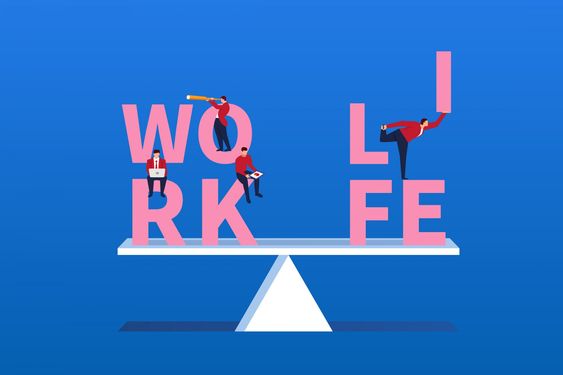Introduction:
In today's fast-paced world, achieving a harmonious work-life balance can seem like an elusive dream. The lines between our professional and personal lives are becoming increasingly blurred, often leaving us feeling overwhelmed, stressed, and burnt out. Many individuals struggle to juggle the demands of their careers with their personal responsibilities, leading to negative impacts on their mental, physical, and emotional well-being.

However, finding a balance between work and life is not impossible. It requires conscious effort, planning, and a willingness to prioritize what truly matters. By implementing some effective strategies and making mindful choices, you can regain control of your time, reduce stress, and create a more fulfilling life both inside and outside of work.
Setting Boundaries for a Healthier Work-Life Balance
One of the most crucial steps in achieving work-life balance is setting clear boundaries. This means establishing limits on when and how you engage with work outside of designated work hours. Consider implementing strategies like:
- Disconnecting after hours: Avoid checking emails or taking work calls outside of work hours.
- Creating a dedicated workspace: Having a designated workspace at home can help you mentally separate work from relaxation.
- Learning to say no: It's okay to decline additional tasks or projects if you're feeling overwhelmed.
Prioritizing Self-Care for Increased Productivity
When you're feeling stressed and burnt out, your productivity and overall well-being suffer. Prioritizing self-care is essential for maintaining a healthy work-life balance and ensuring you're able to show up as your best self both at work and in your personal life. Some self-care practices to consider include:
- Regular exercise: Physical activity is a powerful stress reliever and can boost your mood.
- Healthy eating habits: Proper nutrition provides the energy and focus needed to tackle daily tasks.
- Mindfulness and relaxation techniques: Engage in activities like yoga, meditation, or deep breathing exercises to quiet your mind.
The Importance of Flexibility and Support
A supportive work environment and flexible work arrangements can significantly contribute to a positive work-life balance. Open communication with your employer and colleagues about your needs and limitations is crucial. Consider exploring options such as:
- Flexible work schedules: Negotiate for options like remote work days or adjusted hours.
- ** Utilizing time off:** Take vacations and mental health days to recharge and prevent burnout.
- Seeking support: Don't be afraid to ask for help from family, friends, or colleagues when needed.

.jpg)